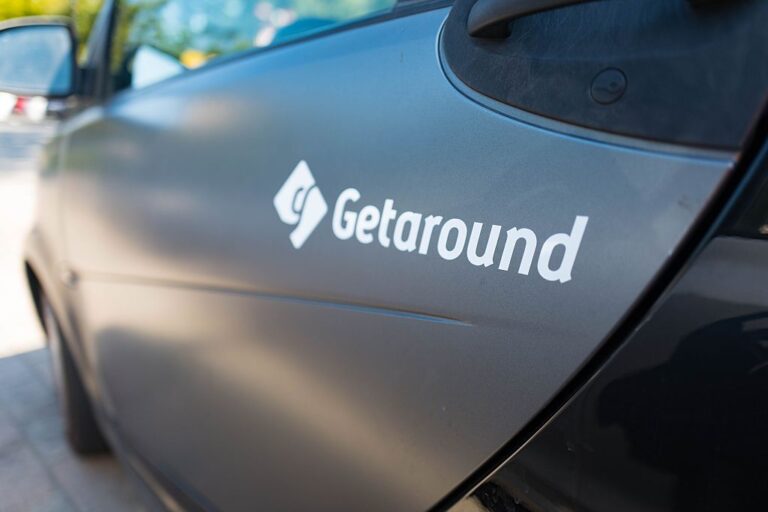Travel is back: Hostaway raises $365M at a $925M valuation
The tourism and travel industries — after several tough years that included not just a global health pandemic but economic and geopolitical upheaval — are finally back on track, expected to make a “full recovery” to pre-pandemic levels of activity, the UN said earlier this month. As an indicator of that, Hostaway, one of the bigger software startups in the space, is announcing a giant round of funding to double down on growth.
The company develops software for vacation rental operators to manage listings, bookings and communication across various third-party sites like Airbnb and VRBO; and it also operates a marketplace of around 200 related services. Now, with revenues and property numbers growing at a rate of 10x or more, Hostaway has closed a round of $365 million at a post-money valuation of $925 million to expand both of these.
New investor General Atlantic is leading the round, with previous backer PSG Equity also participating. General Atlantic is a notable name to have on the cap table: among its many investments in the travel sector, perhaps most importantly the company was a prominent backer of Airbnb when it was still a startup.
Marcus Räder, the CEO of Hostaway, co-founded the company Saber Kordestanchi (COO) and Mikko Nurminen (CFO), borne out of what the three saw as an opportunity to build a big company in this space, providing software to the property rental market, to match the massive growth of Airbnb, VRBO and the others in the space.
As they viewed it, while all of these platforms provided a handy route to customers, the backend of managing across those platforms was very fragmented: that was Hostaway’s focus. To better understand what was needed, the founders set up their own properties.
They spent their first years bootstrapped, and getting rejected by unconvinced investors when they did try to raise money.
That all changed when Hostaway raised its first big round: $170 million from PSG in 2023.
“It sent a shock wave through the industry,” said Räder. “It sent a very strong message to all the competition out there. There’s now two big players in this field, and if you’re not one of them…We are in the right place with the right positioning at the right time.”
Räder still practices what he preaches. He not only lists multiple properties on the platform himself, but he spends a lot of time travelling around with his young family, living the digital nomad life, speaking to TechCrunch while in Paris. More widely, the company is officially based in Toronto but describes itself as a “distributed” workplace, with 230 employees across around 45 countries.
While Hostaway does not disclose its total number of users today, Räder said that growth has been “more than 10x” since 2023. At a most conservative estimate, that would indicate that there are now around 1 million properties on the platform, since there were 100,000 on it previously.
This is still just a small part of the overall market, however, which is estimated to now total some 21 million vacation rentals worldwide. And with 1.1 billion tourists travelling in the first nine months of 2024 — according to UN figures — you could argue that even the 21 million figure is just the tip of the iceberg for the bigger potential in this space.
From listings to smart locks
To that end, Räder said that the funding will be used across a variety of areas.
In terms of technology, Hostaway’s basic capability is to let users manage rentals across multiple marketplaces — an area where it competes against the likes of the equally highly-capitalized Guesty and others.
Alongside that, it has built tools to manage dynamic pricing that use analytics to change pricing based, for example, on wider demand, season, or what comparable properties are going for. Now, it will be using more AI to expand how all of that works for even more granular and personalized results and predictive insights. Given how many images of imaginary homes are now being generated by AI engines these days, the bar will be even higher for owners of actual properties to deliver experiences that can still catch people’s eyes without disappointing them upon arrival.
Beyond this, Hostaway also been delving into a wider range of tech for hosts, including smart locks and insurance, which are fuelled variously by partnerships and M&A. It will be doing more of that to expand its reach further.
Hostaway’s marketplace is very interesting in that context. As with Amazon’s marketplace, this becomes a product sandbox that Hostaway can use both to give customers a wider selection of services to keep them on its platform, as well as a testing bed and feedback generator to figure out what it is that its customers are most interested in at any given moment, to figure out what it should be doing next itself.
“Significant tail winds” is the phrase used to describe the company by Raph Osnoss, the MD at General Atlantic who led the investment in Hostaway. He believes that despite the huge ambitions of online travel agencies (OTAs) like Booking, Expedia (which owns VRBO), and Airbnb, there is still an area that is not touched by any of them, which Hostaway is addressing.
“The short term rental industry is inherently a very fast-growing industry by virtue of people’s preferences,” he said. But with more supply coming online, inevitably there will need to be more “professionalization” coming into the frame, he said.
“OTAs cannot serve the property manager from end to end. If you’re like a single property owner, you might be able to get away with just listing it on an Airbnb. But once you’re a professional property manager that’s managing a portfolio of properties, the way that you deliver value to those properties is being able to list them across multiple OTAs seamlessly, through an API, something that Hostaway facilitates, where you can have a direct relationship with the renter that doesn’t necessarily go through the OTAs.” Plus, he said, Hostaway “is a huge driver of volume to the OTAs, and the OTAs value them for that.”







